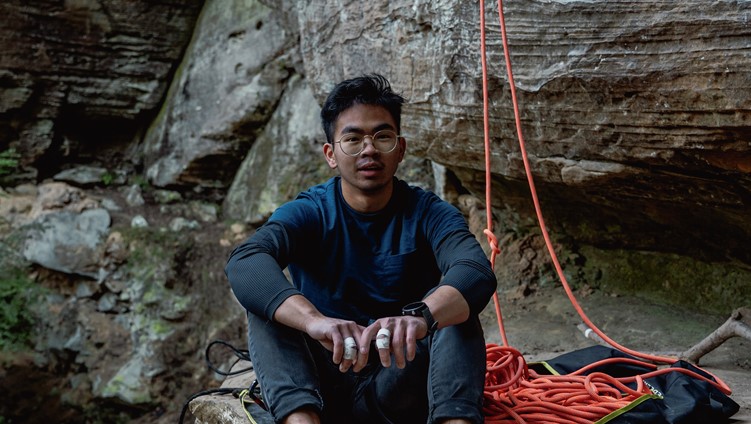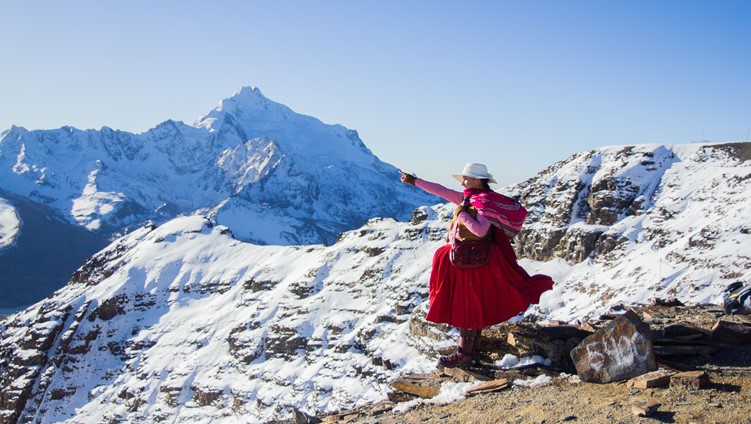The outdoors is often portrayed as the preserve of young white males. As Soraya Abdel-Hadi argues, breaking down these stereotypes will benefit not just society but the wider environment too

The outdoors is often portrayed as the preserve of young white males. As Soraya Abdel-Hadi argues, breaking down these stereotypes will benefit not just society but the wider environment too
For too long, I have stared at posters in the windows of outdoor shops and seen muscled white men staring back at me, usually accompanied by a very skinny white female wearing some shade of pink. Sometimes she is looking adoringly up at the man – such a brave adventurer in the outdoors, leading the way on the trail. How would she cope on her own? Let alone if she was considered to be an ethnic minority, gender neutral, any larger than a size 14, had a disability and was wearing a sensible colour. (Now don’t get me wrong, I love a pink jacket, but too often women are given bright girly colours instead of actual product features.)
If you don’t believe me, have a look at the websites of your favourite outdoor brands. I just Googled a dozen outdoor brands and just two of them had ‘diverse’ models on their homepage – Cotopaxi and North Face. And before anyone tries to tell me that represents our population, approximately 1 in 6 of us in the UK are categorised as ’non-white’ and a similar number are registered as disabled.
The brands will argue that these images are designed to be aspirational, to ignite a fire in us to want to be those people in the outdoors. It’s the same argument made by high-end fashion brands that use models with unattainable figures to sell their products. And, I think most of us are aware, it’s completely flawed. In a world where we are all different and amazing in our own ways, we should be celebrating our diversity. An ethnic minority male growing up in a city environment is unlikely to look at the average outdoor advert and think, “Wow, if I just work really hard I can be that person”, and nor should he want to be.
'In a world where we are all different and amazing in our own ways, we should be celebrating our diversity.'
These companies might also say they are reflecting the majority makeup of those using the outdoors, which may be true. But then I’d like to direct them to the increasing evidence of the importance of role models in shaping aspirational behaviour – if you see someone you relate to doing something, you are more likely to aim for it yourself (The Importance of Real Life Women Role Models, Imagine Me – the Power of Role Modelling, Girls in STEM: the importance of role models). They’d also benefit from doing this – help increase the size of the market, more potential sales – it’s actually good business sense, too.


On social media, the message is more diverse, but only if you go digging for it. Women, in particular, are gaining ground, albeit with some questions about the type of images shared on social media (How Instagram is Skewing The Way We Talk About Women in the Outdoors, Climbing Media is not Sexist, You Are). Disability athletes are often the most successful in raising the profile of the diversity of the outdoors through a story of overcoming the odds. (I recommend the film ‘Stumped’ for an interesting take on how we view disability athletes in the outdoors.)
However, the mainstream outdoor channels and popular ‘public figure’ profiles are normally of the rugged white man, usually complete with beard grown in a far-flung environment. You’ll see him at all the talks and he’s a nice guy. He was inspired by the advertising because he could be that person, he is probably from a background that gives him the opportunity to travel (all of us who have that opportunity are incredibly privileged), he might have lived in or near the countryside when he was growing up. The world was made for him to do what straight white men have done for centuries – conquer the outdoors. I have lots of friends like him. I think he’s great. I just don’t think he should be the only one out there.
The benefits of spending time in the outdoors have been known for centuries anecdotally. Recently, science has got involved. We know that being active outside has physical health benefits – improved heart health and weight loss are just two of the headlines. But it’s also been shown that walking outside can improve your mental capacity, increase your creativity and problem-solving skills, and help with the treatment of mental health. I argue that these positive impacts should be available to the whole of the society – how much better would the world be if they were?
Maybe you don’t care about other people, and that’s fine. Moving on to more arguably selfish motivations, I’d quite like us to save our natural world and, therefore, secure our own futures. A quote by former CEO of iconic sustainable clothing brand Patagonia, Kristine Tompkins, says: “You can’t protect a place unless you understand it. You can’t love it until you know it.” There are a lot of people, who spend no meaningful time outside in nature. They do not know it or understand it and, therefore, it is something so far from them they cannot relate to issues facing it. It’s a form of willful blindness – the issues facing our planet are complex and distant, which makes it easy for humans to turn away from it. Is it not a shame that so many people don’t feel like the outdoors is for them and so are unlikely to take meaningful action to protect it?
'Is it not a shame that so many people don’t feel like the outdoors is for them and so are unlikely to take meaningful action to protect it?'
The areas that are underrepresented in the outdoors are numerous. They include the young, the ‘old’, women, LGBT, ethnic minorities, underprivileged backgrounds and disability. The good news is, there are people doing something about it. Over the next few months, Adventure Uncovered will be delving deeper into where these organisations are working, what they are championing and how you can get involved.



If you know of an individual, community, charity, organisation or governing body working to improve any form of diversity in the outdoors, get in touch and email us here: info@adventureuncovered.com – we want to celebrate these actions and encourage others to change the narrative.

